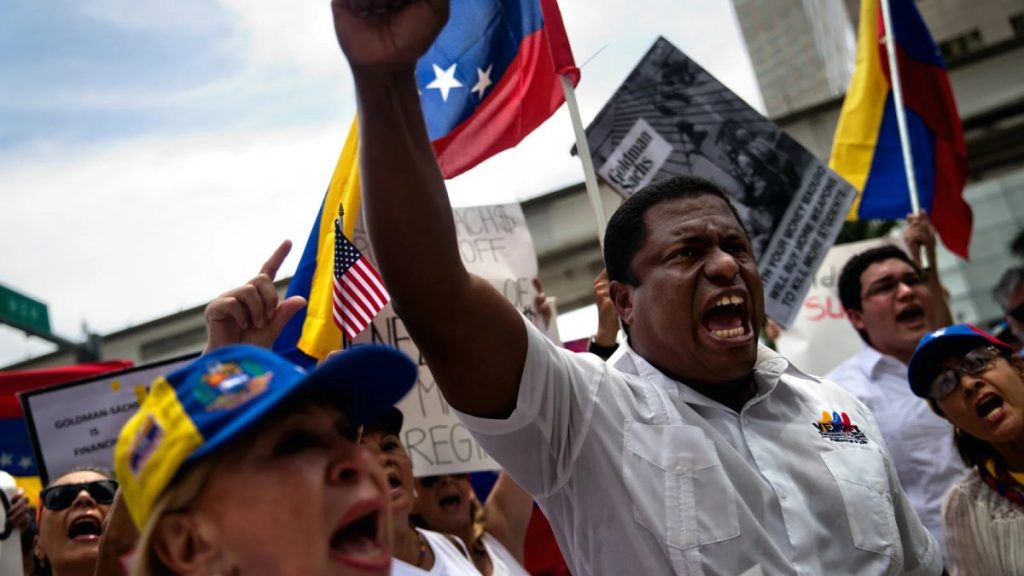The southern Caribbean is the stage for a dangerous game of chicken, as Venezuela faces off against the United States in a military confrontation, capturing headlines globally. Recently, Washington has sent a powerful naval armada to the area, consisting of three Aegis destroyers and several thousand Marines and sailors.
Formally, the mission is intended to fight transnational crime and narcotrafficking, an ancient American priority. But the size of the deployment—and doubling the reward for tips leading to the arrest of Venezuelan President Nicolás Maduro—have led many to think there are deeper strategic motives behind the selection. The operation is viewed as part of an overall plan to tighten the noose around Maduro.
He has been charged by American prosecutors as the alleged head of a trafficking network linked to Venezuela’s military, and the Treasury Department has levied additional sanctions on individuals linked to the notorious “Cartel of the Suns.” The officials in the White House have not hesitated to refer to Maduro not as a legitimate president but as the leader of a criminal syndicate, reflecting the government’s commitment to shunning him internationally. Caracas has responded in defiance.
Maduro condemned the naval deployment as psychological warfare against his regime and ordered thousands of troops to redeploy to exposed areas, including the border with Colombia. The Bolivarian Militia, a massive volunteer force, has been mobilized to bolster the defense, with Defense Minister Vladimir Padrino calling for new naval patrols around Venezuela’s main oil-extraction veins. Maduro’s government has also called for the United Nations to condemn so-called U.S. aggression.
The standoff heated up when two Venezuelan F-16 jets passed uncomfortably close to the USS Jason Dunham in international waters. The Pentagon referred to the maneuver as “highly provocative” and cautioned Caracas against interfering with U.S. counter-narcotics efforts. As the American ship maintained its firebreak, the action served to demonstrate the rapidity with which things were to come to full-blown war. The use of militias was played up by Venezuelan official media as proof of national cohesion in the face of foreign pressure.
Underlying these tensions lies an intersection of criminal networks. Washington blames Maduro for sheltering and profiting at the expense of groups like the Tren de Aragua, a notorious group lately sanctioned as a terrorist organization. U.S. troops recently sank a speedboat U.S. officials said was associated with the group, and eleven people were killed. Washington officials defended the attack, but Caracas branded it an extrajudicial killing, adding to the diplomatic furor. In the background is Venezuela’s underwater boundary dispute with Guyana, which feeds into the uncertainty.
A Venezuelan warship this month sailed into Guyana’s exclusive economic zone and approached an ExxonMobil oil rig, requesting information from the crew. Guyana condemned the move as a show of sovereignty and sent its own troops, but Venezuela asserted that the region is still disputed. The long-standing dispute over the Essequibo territory has been escalating, and recent military attacks by each country indicate tensions more heightened.
The general background explains the shifting politics of U.S. policy. Decades of vicious sanctions and coercion failed to topple Maduro, who increasingly depended on militarized patronage and criminal economies to preserve his grip on power.
Experts caution that more military pressure may not break his grip on power but will simply push him further into the embrace of criminal cartels. A softer approach will ease tensions but will do little to unmake the entrenched corruption at the heart of Venezuela’s regime.
At least for the time being, the risk of full-scale war is low, though the South is always a volatile threat for escalation. Both appear to be testing the other’s limits, as the U.S. balances show of force with pragmatic interests like deportation agreements and regional security cooperation.
The Caribbean, a multiracial melting pot of war and commerce for centuries, is again a stage on which politics, power, and survival intersect—a stage whose denouement can have implications throughout energy markets, migration channels, and the arithmetic of stability in the Americas.


